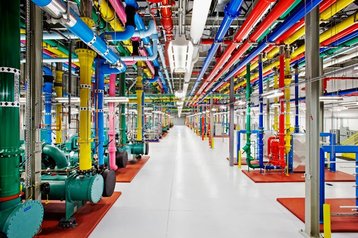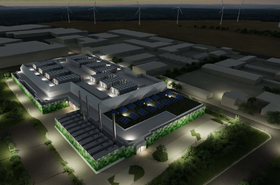The Luxembourg government's minister of economy has called on Google to make a decision about a long-planned and oft-delayed data center.
Google purchased the land in 2017, pushing the government to help seize a farmer's plot and stressing that it was operating to a tight timeline. But local pushback and court cases have left the project languishing.
The €1 billion ($1.1bn) project began in 2017 with Google struggling to find land for the proposed facility, at one point giving Luxembourg an ultimatum: Help us find land, or we'll walk.
An area to build on was finally found in Bissen, but the part-owner of a small parcel of the land refused to sell. He was forced to when the government intervened and threatened to take his potato farm anyway.
By 2019, the land was reclassified from farmland into an industrial site fit for a data center.
But local groups protested the potential development - with Luxembourg such a small country with a population of around 600,000, the data center could consume as much as 12 percent of the nation's electricity. Google did not disclose how much water it would use.
The company is also seeking tax breaks and other incentives - making critics question if the project is worth 100 jobs.
The development plans were officially approved by the commune in October 2020, but a court case by the Mouvement Ecologique environmental organization tried to overturn the decision. The effort failed this March.
The land now remains in Google's possession, but it is not clear if it still wishes to build in the country - having expanded elsewhere, including nearby Belgium, in the interim.
“The way is free for Google to tackle the next steps,” minister Franz Fayot said in comments to the state Parliament, first published by Delano. “I cannot tell you today when these next steps will be taken.”
He added that he assumed Google would need to re-evaluate the project given all the delays, but said he remained optimistic, and that in talks with the company there was no indication it had dropped the data center entirely.
However, he added, “there needs to be a decision” soon due to the lack of land in the country - with other industrial groups seeking space to expand.
Per the original contract, the government can buy back the land at the original price, but only if Google decides to sell it. “The ball is in their court,” Fayot said.




